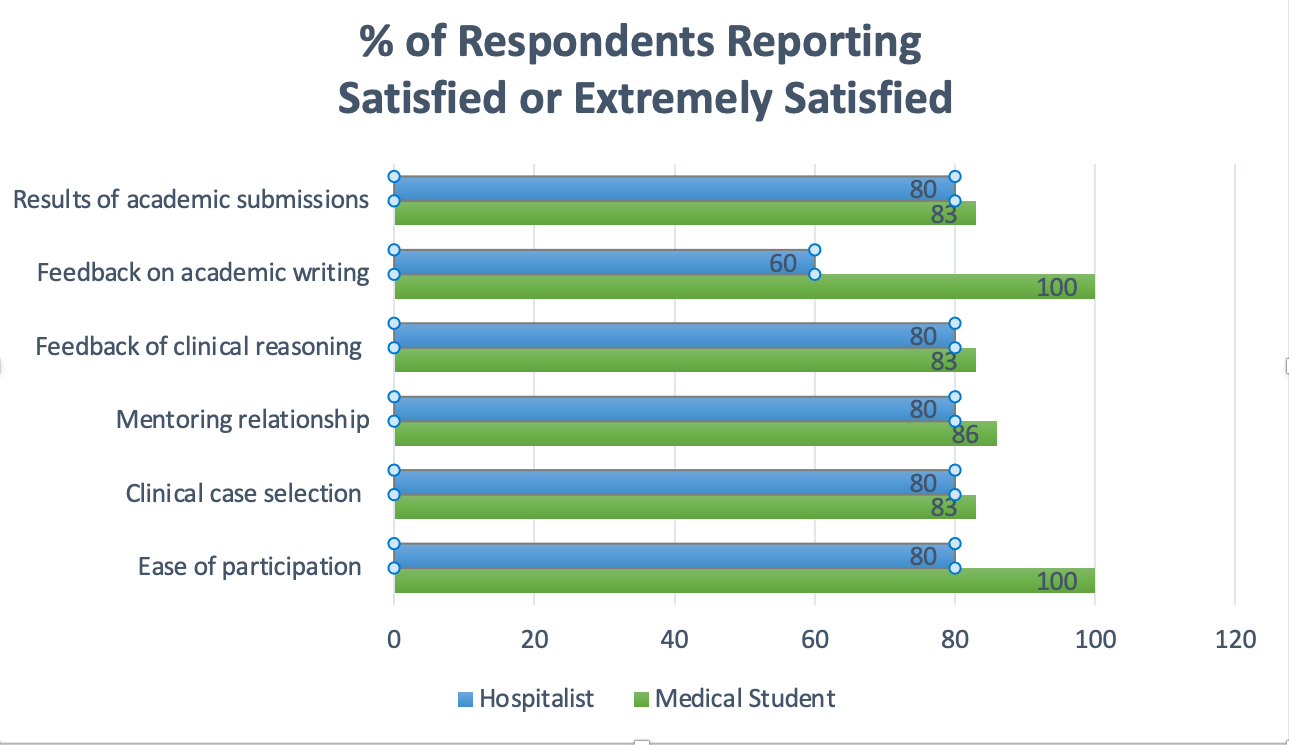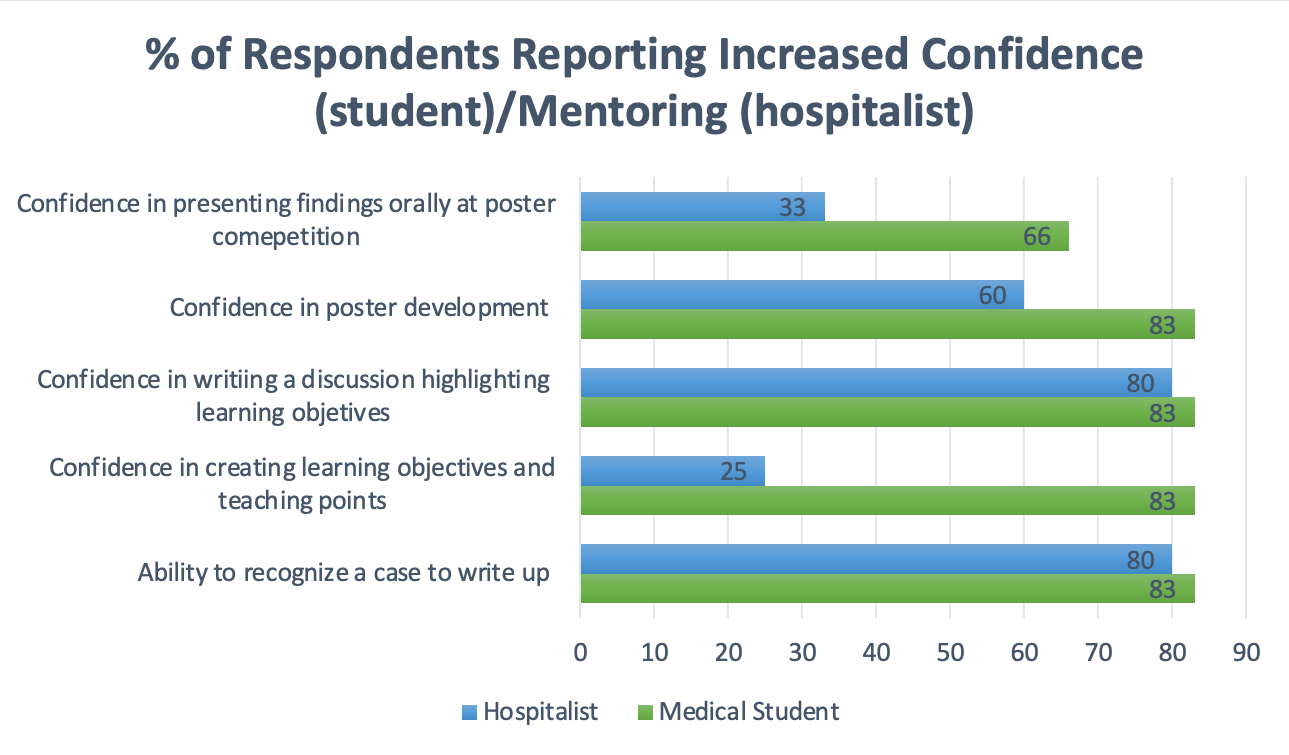Background: Clinical case vignettes (CCVs) help trainees develop academic writing and conference presentation skills while learning clinical reasoning and diagnostic approaches. For hospitalists, CCVs provide academic meeting involvement, scholarly activity, and mentor relationships. Both groups face submission barriers. Heavy clinical burdens may limit hospitalists writing time, whereas students lack case exposure, clinical knowledge and writing experience. Intentionally matching these groups for CCV writing is mutually beneficial.
Purpose: This project developed a structured hospitalist and medical student matchmaking process to enhance the CCV writing experience and increase CCV abstract submissions by leveraging hospitalist expertise with students learning objectives and availability.
Description: Despite the benefits of CCV submissions, prior to 2020, our Section of Hospital Medicine at the University of Chicago lacked structure to track, promote or match medical students interested in writing CCVs with hospitalist mentors, and averaged 0-2 CCV submissions annually between 2017 and 2020. Hospitalists submitted CCVs individually, or occasionally with medical students on shared cases. In September 2020, the CCV Leader from the education committee structured this pairing by emailing fourth year medical students from the internal medicine interest group encouraging participation in “hospitalist matchmaking” for the November CCV abstract submission deadline. The academic benefits of writing, presenting, national conference attendance, and the experience for resident interviews were highlighted. Hospitalists were invited to participate using their own case or one from a manually reviewed case repository created for this initiative through clinical exposure and an open call for cases. Students and hospitalists were matched based on clinical interests. The CCV Leader provided guidance, examples, templates, submission criteria, and supported hospitalists new to student mentoring.In the first year of CCV matchmaking, 8 abstracts were accepted out of 12 submitted. In 2021, 7 abstracts were submitted and 6 accepted. After 2021, participating students and hospitalists were surveyed with response rates of 100% (n=7, 1 incomplete) and 71% (n=5), respectively. All students and 40% of hospitalists reported no previous CCV writing experience. Both groups reported high satisfaction with the ease of participation, case selection, mentoring relationships, and the feedback process (table 1). Most (60%) hospitalists sought mentoring support; 50% wanted additional mentor training. Both groups increased future CCV case recognition (students 83%, hospitalists 80%). Students reported increased confidence in the CCV process and hospitalist reported increased confidence in mentoring these skills (table 2). All respondents recommended the experience to future participants.
Conclusions: Matching students with hospitalists provided a mutually beneficial mentorship relationship by developing students CCV writing, submission, and presentation skills and increasing hospitalist mentorship opportunities. This process increased our sections CCV submissions and the structure improved acceptance rates. Next steps include expansion to additional students to continue to develop CCVs with hospitalist mentors, writing and submission of case reports, growing the case repository and developing additional mentor support for hospitalists.


